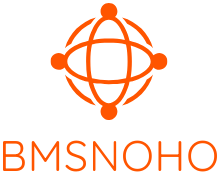Table of Contents
ToggleIn a world where everyone seems to be sprinting ahead, tracking personal growth can feel like trying to find a needle in a haystack. But fear not! With the right tools and a dash of humor, monitoring progress can turn into an exciting adventure rather than a tedious chore. Imagine measuring your achievements like a pro athlete—only instead of scoring goals, you’re scoring life wins, one awkward moment at a time.
Understanding Personal Growth
Personal growth encompasses the continuous process of self-improvement in various aspects of life. This journey involves fostering emotional, intellectual, and spiritual development.
Definition of Personal Growth
Personal growth refers to the deliberate efforts individuals make to improve themselves. It often involves setting goals, acquiring new skills, and changing mindsets. Individuals might explore different dimensions, including emotional intelligence, career advancement, or health improvement. Measurable changes can lead to enhanced self-awareness and fulfillment. This growth often results from overcoming challenges and reflecting on experiences, as people learn about their strengths and weaknesses.
Importance of Tracking Personal Growth
Tracking personal growth serves as a vital tool for maintaining motivation and awareness. Documenting progress helps individuals identify patterns and celebrate achievements, no matter how small. Recognizing successes fosters a sense of accomplishment and encourages consistent effort. Furthermore, people who track their growth are better equipped to adjust their goals based on their experiences. This practice promotes accountability and clarifies what actions yield positive outcomes. By reflecting on progress, individuals can focus on areas needing further development.
Methods to Track Personal Growth
Tracking personal growth requires structured approaches that ensure clarity and progress. Two effective methods include journaling and setting achievable goals.
Journaling Your Journey
Journaling serves as a personal narrative, capturing thoughts and experiences that mark growth. Individuals can reflect on daily events, feelings, and insights gained. Regular entries foster self-awareness and reveal patterns over time. For example, writing about challenges faced highlights resilience and adaptability. Different journaling techniques, like gratitude lists or prompts, also encourage deeper understanding of emotions. Users often benefit from revisiting past entries, enabling recognition of progress made.
Setting Achievable Goals
Setting achievable goals creates a roadmap for personal development. Clearly defined objectives provide direction and motivation. SMART (Specific, Measurable, Achievable, Relevant, Time-bound) goals offer a structure that enhances focus. Aiming for short-term milestones helps maintain momentum, encouraging consistent progress. Evaluating goals periodically allows individuals to adjust strategies based on what they’ve learned. Celebrating small victories boosts confidence and reinforces commitment to continuous improvement.
Tools for Tracking Personal Growth
Tracking personal growth requires reliable tools that cater to individual preferences and needs. These tools facilitate monitoring progress and maintaining motivation throughout the journey.
Apps and Software Options
Numerous apps support personal development. Platforms like Notion provide customizable templates for goal tracking and journaling. Similarly, Day One focuses on journaling with features for reminders and photo attachments. Habitica gamifies habit formation, turning progress into a fun challenge. Users find that apps like Coach.me offer community support while tracking goals. Each of these options enables individuals to document their journey effectively.
Traditional Tools: Planners and Notebooks
Traditional tools retain significant value in personal growth tracking. Planners allow individuals to write daily reflections and set monthly goals. A dedicated notebook can serve as a journal for thoughts, experiences, and accomplishments. Bullet journaling is a popular method for organizing tasks and tracking habits through customizable layouts. Some prefer using vision boards for visual affirmation of goals. Each method provides a tangible way to reflect on personal growth over time.
Challenges in Tracking Personal Growth
Tracking personal growth poses unique challenges, often resulting in frustration. Individuals frequently face resistance when setting goals or creating a plan. Overcoming reluctance involves recognizing the benefits of progress tracking. Taking the first step is crucial; small adjustments can lead to positive outcomes. Acknowledging fears of failure fosters a mindset geared toward growth.
Staying motivated can be difficult amidst life’s pressures. Regular check-ins on progress inspire continued effort. Celebrating achievements, no matter how small, sustains excitement. Sharing goals with friends or family cultivates accountability. Engaging with supportive communities strengthens commitment. Finding inspiration through success stories provides renewed energy. Maintaining a positive outlook plays a significant role in managing setbacks. Tracking personal growth equips individuals with tools for ongoing self-improvement.
Tracking personal growth isn’t just about measuring success; it’s about embracing the journey. By utilizing structured methods and reliable tools, individuals can turn the process into an engaging experience. Every small victory counts and contributes to a larger narrative of self-improvement.
With consistent effort and the right mindset, personal growth becomes a fulfilling adventure. Celebrating achievements and reflecting on progress fosters a deeper connection to one’s goals. Ultimately, the commitment to tracking growth empowers individuals to navigate challenges and pursue their aspirations with confidence.







